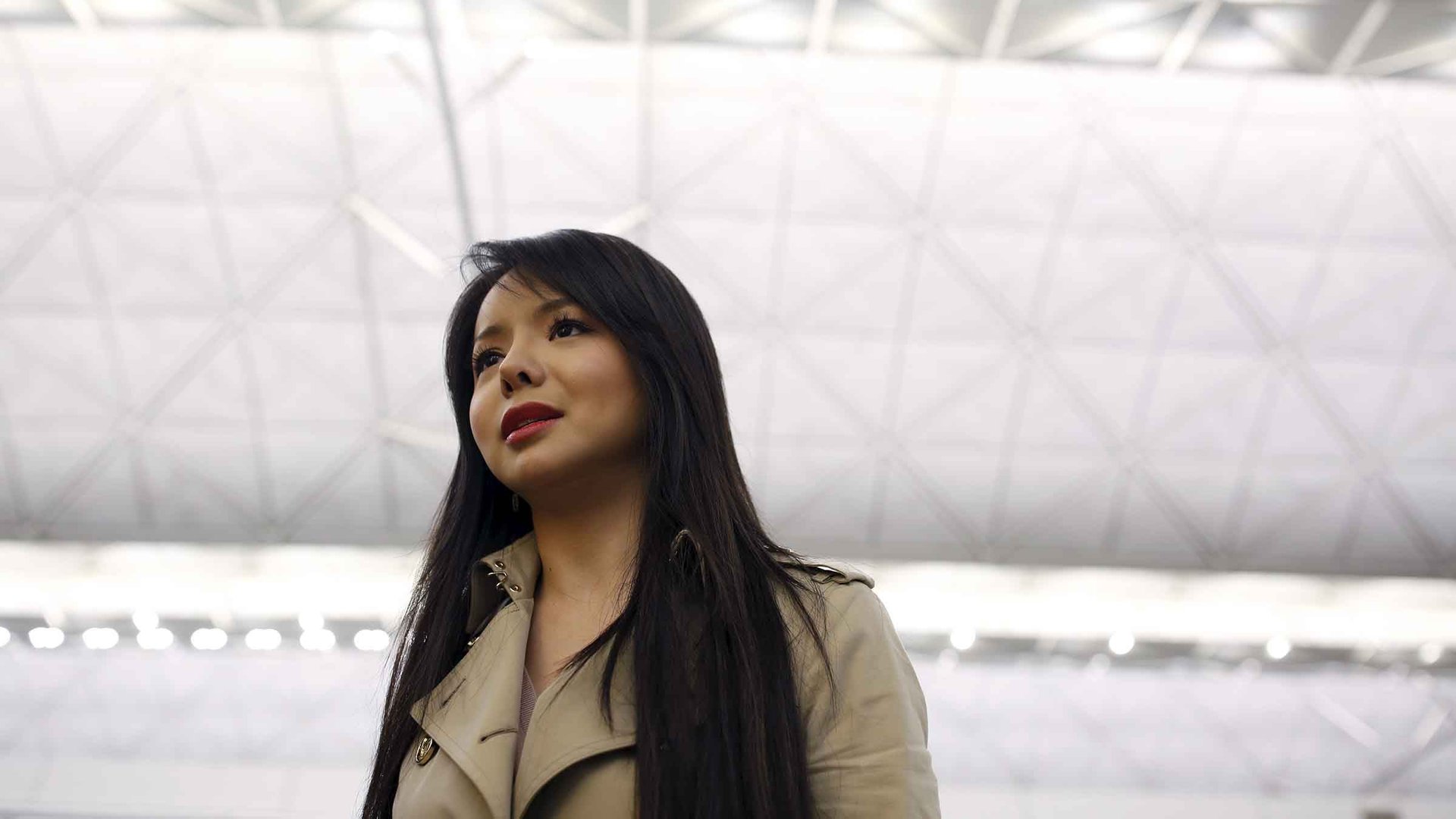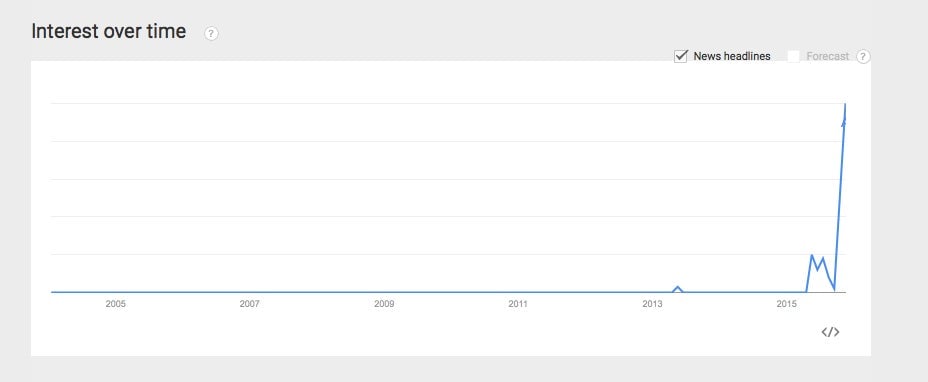China barred a human rights activist from a global beauty contest—putting her squarely in the spotlight
Yesterday (Nov. 26), Anastasia Lin, the winner of Miss World Canada, was barred from boarding her flight from Hong Kong to Hainan, a tropical Chinese island and the host of this year’s Miss World contest. The decision to block her was likely based on Lin’s history of drawing attention to China’s human rights abuses.


Yesterday (Nov. 26), Anastasia Lin, the winner of Miss World Canada, was barred from boarding her flight from Hong Kong to Hainan, a tropical Chinese island and the host of this year’s Miss World contest. The decision to block her was likely based on Lin’s history of drawing attention to China’s human rights abuses.
But if silencing Lin’s criticisms was the plan, it has backfired dramatically. In the roughly 24 hours since Lin was refused entry, media outlets the world over have sought out Lin to discuss her viewpoints on China’s abuse of its citizens’ freedoms and rights. Her name is suddenly the subject of Google searches:

Google News shows 14,700 results for “Anastasia Lin” and “interview.” Here is just a partial list of the media coverage generated since the contestant said she was refused entry to China:
- China bars Anastasia Lin, Miss World Canada (and rights advocate)—New York Times (US)
- Anastasia Lin: Miss World Canada barred from entering mainland China for being ‘outspoken’ about human rights issues—Independent (UK)
- Canada’s Miss World contestant says she was denied entry to China—Al Jazeera America (US)
- Anastasia Lin, Miss World contestant, barred from entering China—The Huffington Post (US)
- Miss World Canada denied China entry at Hong Kong airport after human rights advocacy—South China Morning Post (Hong Kong)
- Anastasia Lin, Miss World Canada, denied entry to China for pageant—CBC (Canada)

Lin traveled to Hong Kong after Chinese authorities didn’t send her a visa ahead of the Miss World pageant, and declared her “persona non grata,” indicating she wouldn’t be able to enter the country. Canadian citizens can travel to Hong Kong without a visa, and get a 15-day visa on arrival at Hainan, so Lin thought she might be able to enter anyway, she told Quartz. But a customs official told her over the phone that she was “not eligible” to travel there.
“They never gave me a clear denial until yesterday, and Miss World never disqualified me from the competition,” she said, so she thought she would try.
Lin, who moved to Canada from China when she was 13, was a member of the Young Pioneers, a Communist Party youth group, when she was in elementary school, because it was what “elite” students were supposed to do, she told Quartz. “Basically we were brainwashed,” she said.
She spent her early days in Canada composing talking points in her head to explain to people why communism wasn’t bad. But after reading about the Tiananmen Square massacre, and the Chinese government’s treatment of the Falun Gong religious group and Tibetan Buddhists, she said she was “shocked.” The more research she did, the more the “truth got uglier and uglier,” she said.
Lin, now 25, has been a vocal supporter of human rights in China for some years, so much so that it might have been more surprising if the Chinese authorities actually let her in. But Lin argues that being outspoken shouldn’t result in being barred from a competition that happens to take place China. “Miss World didn’t even try to contact me,” she told Quartz. “These international organizers just give in to whatever China wants to do, so China continues to do it.”
In a Facebook post written after she was denied entry to Hainan, she urged media and the public to push back:
“Ask [the authorities] what kind of precedent this sets for future international events. Ask them whether they will also bar athletes from participating in the 2022 Winter Olympics if they hold views that the Communist Party disagrees with. If an athlete is of Tibetan or Uyghur heritage, and advocates for the human rights of those peoples, can they compete in the Olympics? What if they practice Falun Gong? Or if they support democracy in China?”